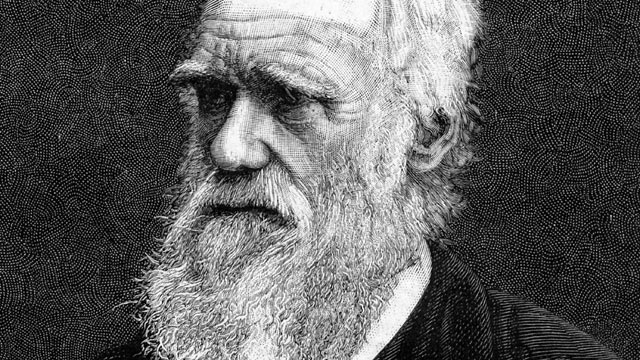Language as a boundary
As a part of a philosophical investigation which tried to grasp the limit of our abilities as human beings, being subjected to the use of language, Ludwig Wittgenstein is discussing the subject of pain. Pain is a very good example of showing clearly how a feeling cannot be transferred or transmitted properly through language.
There are so many questions raised when dealing with a sentence of “he is in pain” : how much room is there for doubt ? for mistakes ? misjudgment ? an assessment will always be built on our personality, physique, assumptions, ideology, our ontological predicament -which is our common believes we share with the people speaking the same language as we speak. The language builds thoughts, thoughts are our connection with reality or reality itself, the world.
A pattern of emergence
Darwin’s theory of evolution provided a model that challenges our perception of reality fundamentally. In the natural world, the only difference between the existing and the extinct is can be only survival. Survival is arbitrary, it is determined by chance or coincidence – survival of the fittest, over-simplified: whatever made it – stayed. This model challenged how we used to conceive cause and effect, our world can exist without a specific reason or at least an unknown one, we can see it as process with no guiding principles, but with a pattern. That pattern we can call emergence. It is something which we ‘recognize’. We can recognize this as long chain of cause and effect but never concept an origin or a first cause. Entropy (randomness and chaos) exists and strips apparent order out of objects of our reality, we encounter it especially with non-human scales, for a reason. It’s time we make the assumption that Negentropy (opposite of Entropy) exists only through human eyes, when things become more in order, organized or structured or functional, it is just how we concept reality as human, but it might be an illusion, not how reality is.
Knowing the limits
As a conclusion of the above, we can assume knowledge is just the widest spectrum of logic and order we are able to find at a certain time. Our prediction is always valid to a certain scale (Planets, Human, Particles), when we switch between scales ‘the rules are changing’ from Einstein to Newton to string theory only because they are not absolute rules, they are just patterns. What does it mean? at each point in time we can only find ‘rules’ or logic in a certain spectrum. What we know is always a temporary recognition of a pattern until we find a wider spectrum of it through Science, Philosophy and art.
Absolute values
We humans see only a 0.0035% of the electromagnetic spectrum. We mistakenly interpret the world in a Negentropic way, which is missing the big picture. To make sense of things we prefer psychologically to have boundaries and relate everything to a position within those boundaries, this is how we have the illusion of control.
Physiology, Psychology, Ontology
Our world perception is built as a mix of those three. Our physiology is our state in the world, our body and limitations. Our psychology is our mind, our unique way of seeing the world as humans, it involves pattern recognition as a way of prediction but it involves another elements which helps us make better decisions than the rest of the animals (survival-vise, so far), we have morals, which can tell good from bad, it helped us build a civilization and a language. Our human language builds quite a specific consciousness, one that invented morals, good and bad, sin and grace, aesthetics, philosophy, art and music. Wittgenstein tries to show how language cant be private, it has to be shared by a group of people, it emerges organically and is quite materialistic and target oriented meaning – practical and functional.

